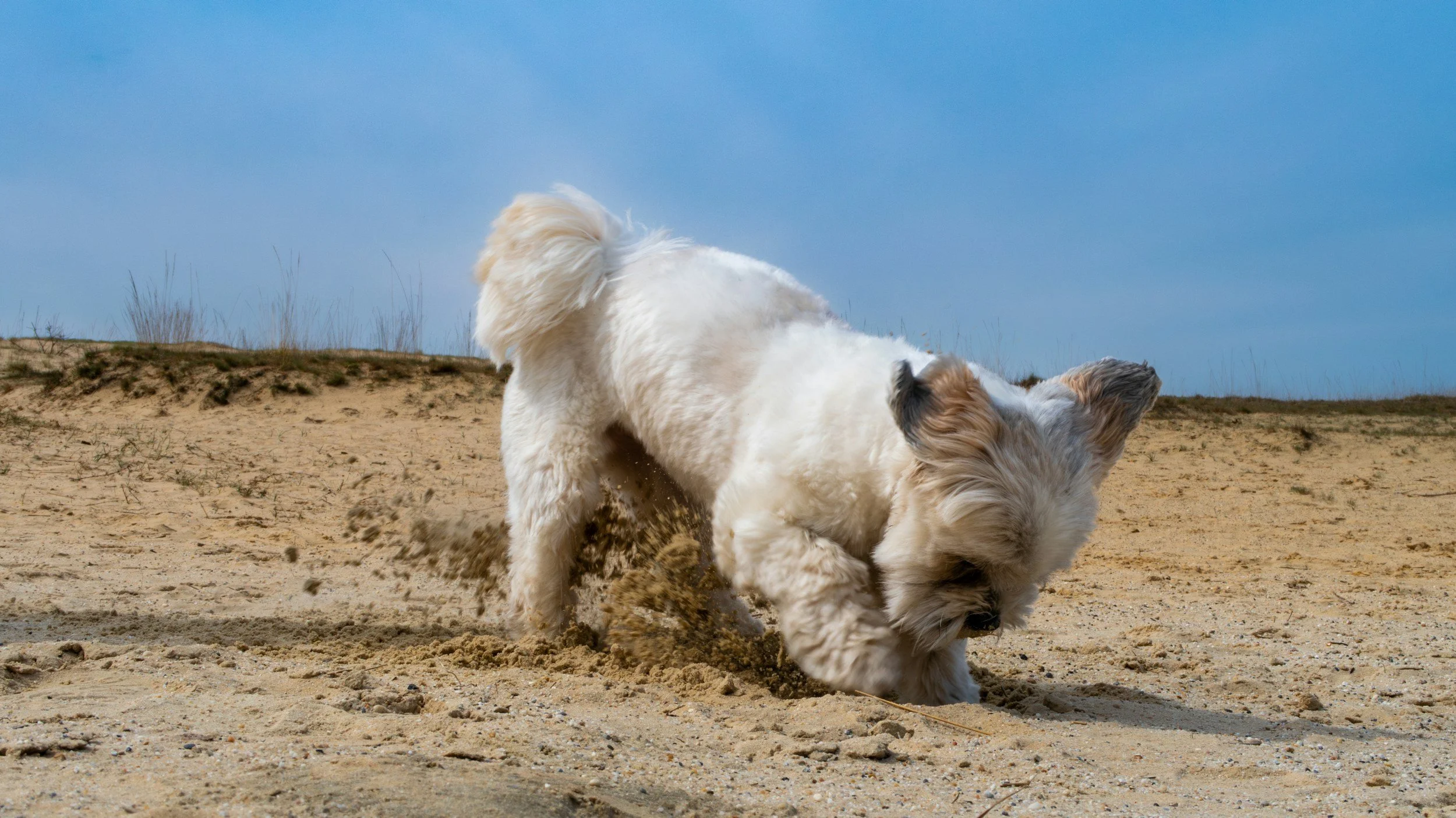Species Appropriate Behaviors: What It is and Why It Matters
Understanding Why Dogs Do What They Do
Have you ever wondered why your dog loves to dig in the yard, sniff every inch of a trail, or bark at the mail carrier? While these behaviors might feel frustrating or disruptive, they are actually completely normal—and even essential—parts of being a dog.
These are called species-appropriate behaviors: natural instincts that are hardwired into dogs through generations of evolution. Understanding and supporting these behaviors is key to creating a balanced, enriched life for your dog.
Let’s explore what species-appropriate behaviors are, why they matter, and how you can support your dog’s natural needs in a positive, practical way.
What Are Species-Appropriate Behaviors?
Species-appropriate behaviors are the instinctive actions dogs are biologically designed to perform. These behaviors are not taught—they’re inherited. They include:
Sniffing
Digging
Chewing
Chasing
Barking
Rolling in smells
Guarding resources
Nesting or denning
Greeting with excitement (including jumping or mouthing)
These behaviors aren’t signs of disobedience. They are expressions of your dog’s nature.
Why These Behaviors Matter
Dogs, like all animals, have physical and emotional needs that go beyond food, water, and shelter. Just as birds need to fly and cats need to scratch, dogs need to engage in species-specific behaviors to stay mentally and emotionally balanced.
When those needs aren’t met, dogs often turn to undesirable behaviors such as:
Excessive barking
Destructive chewing
Escaping or digging
Hyperactivity or reactivity
Anxiety or stress-related behaviors
Rather than trying to suppress these behaviors, we can redirect them in ways that are safe, appropriate, and satisfying.
How to Redirect, Not Eliminate
The goal is not to stop dogs from acting like dogs—it’s to channel those instincts into acceptable outlets. Here’s how:
Chewing
Why: Relieves stress, boredom, or discomfort (especially during teething)
Try: Frozen Kongs, bully sticks, safe chew toys
Digging
Why: Instinctual, cooling down, stress relief
Try: A designated dig pit or sandbox filled with toys and treats
Sniffing
Why: Information gathering and exploration
Try: Scent walks, sniffari-style outings, scatter feeding, nose work games
Barking
Why: Communication, alerting, excitement
Try: Teach a “quiet” cue and reward calm behavior. Provide enrichment and reduce overstimulation.
Chasing
Why: Prey drive or herding instinct
Try: Flirt poles, structured fetch games, and safe off-leash exercise areas
Mental Health Benefits of Natural Behaviors
Allowing dogs to express their natural instincts has a powerful effect on their overall well-being. Supporting species-appropriate behavior can:
Reduce stress and anxiety
Increase focus and calm
Decrease frustration and reactivity
Improve behavior and responsiveness to training
Strengthen the human-animal bond
These behaviors are not optional add-ons to your dog’s day—they are essential needs, just like food and exercise.
Finding the Right Balance
While it’s important to respect your dog’s instincts, it’s also necessary to set boundaries. You can allow natural behaviors without letting them become destructive or disruptive. The key is thoughtful management, enrichment, and clear communication.
For example, you may not want your dog to chew on shoes—but you can teach them to chew on designated toys. You might not want barking at every noise, but you can teach them when it’s time to settle.
With structure, consistency, and compassion, you can support your dog’s needs and maintain a peaceful household.
Understanding species-appropriate behavior is one of the most valuable steps you can take toward building a respectful, balanced relationship with your dog. These behaviors are not problems to be solved—they’re needs to be met.
By providing healthy outlets and realistic expectations, you can create a more fulfilling life for your dog—and a more enjoyable one for yourself.
Ready to Support Your Dog’s Instincts—Without the Chaos?
At Bright Pet Behavior and Training, we help you understand your dog’s behavior from the inside out. Whether you’re dealing with unwanted habits or simply want a calmer, more content companion, we’ll work with you to create a plan that honors who your dog is.
Visit Training Services to learn more about enrichment-based training and behavior support.

